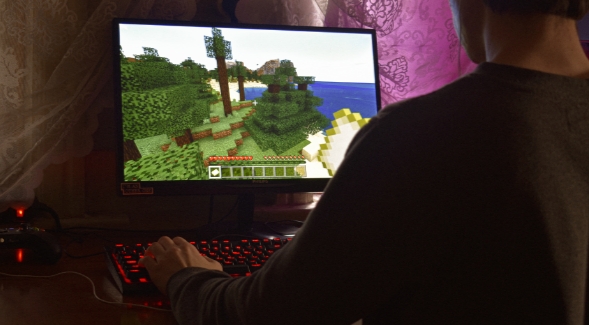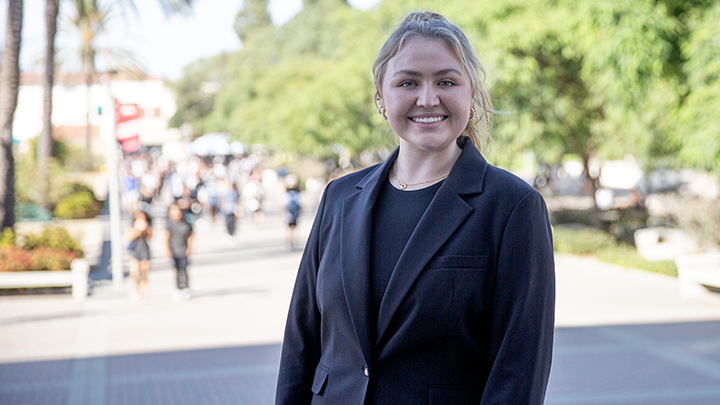SDSU Joins Research on Tribal Video Game Participation
The Sycuan Institute on Tribal Gaming at SDSU to support first-ever survey of Video Gaming Participation in American Indian Tribal Communities

San Diego State University is part of a partnership launching a national survey on American Indian tribal participation in video games and esports.
The Sycuan Institute on Tribal Gaming in the L. Robert Payne School of Hospitality & Tourism Management is funding a pilot project by incoming Assistant Professor Brandon Mastromartino to help the university, the Sycuan Institute, and tribal communities understand the breadth and depth of video gaming participation across Indian Country. The school is in SDSU’s College of Professional Studies and Fine Arts (PSFA).
“This project with Project Quipu to gauge the scope of participation in video games and esports in Indian Country extends the Sycuan Institute’s commitment to produce academic research related to tribal government gaming and to engage in public policy work related to tribal return on community and nation-building,” said Katherine Spilde, Endowed Chair of the Sycuan Institute. “The findings and publications from this collaboration will also contribute to the Institute’s engagement with new forms of gaming and help us better support tribal youth and communities connect across Indian Country’s geographic barriers.”
“I am excited to bring my experiences with sports management to this new project at SDSU and to work with the Sycuan Institute, AISES and Project Quipu on extending their reach into the global sports community,” said Mastromartino. “This research can ultimately benefit tribal youth and education efforts as well, which align with the historic investment by the Sycuan Band of the Kumeyaay Nation to create the Sycuan Institute with a focus on tribal nation building through tribal gaming and other games.”
The SDSU survey builds on an earlier survey conducted in partnership with the American Indian Science and Engineering Society (AISES) to interview their members about video game participation and connectivity.
Through its partnership with Project Quipu, AISES will help distribute the survey and use the findings to determine the ways in which video gaming can improve education efforts for tribal youth.
“Identifying the nuances of video gaming and esports among Tribal youth is innovative,” said Sarah EchoHawk, CEO at AISES. “Esports continues tremendous growth with its popularity rising among youth in Tribal/Indigenous communities. This survey will help to understand the motivation, excitement, experience, and influence esports has within our young Tribal/Indigenous video gaming community.”
The research team plans to submit the papers produced from their research to several peer-reviewed journals for consideration and publication.
“I am looking forward to the outcomes of this historic collaborative project and to better understanding ways to address the geographic isolation of tribal communities,” said Project Quipu co-founder Hai Ng. “I look forward to working with the Sycuan Institute to extend their work on tribal government gaming into the video gaming ecosystem and to encourage tribal youth to pursue careers in this thriving global industry.”
Project Quipu is a nonprofit that utilizes video gaming, competitive gaming, and esports as a vehicle to enhance cultural and social cohesion and to create new career and economic opportunities with and between American Indian Tribal Nations.
The survey can be accessed online.



